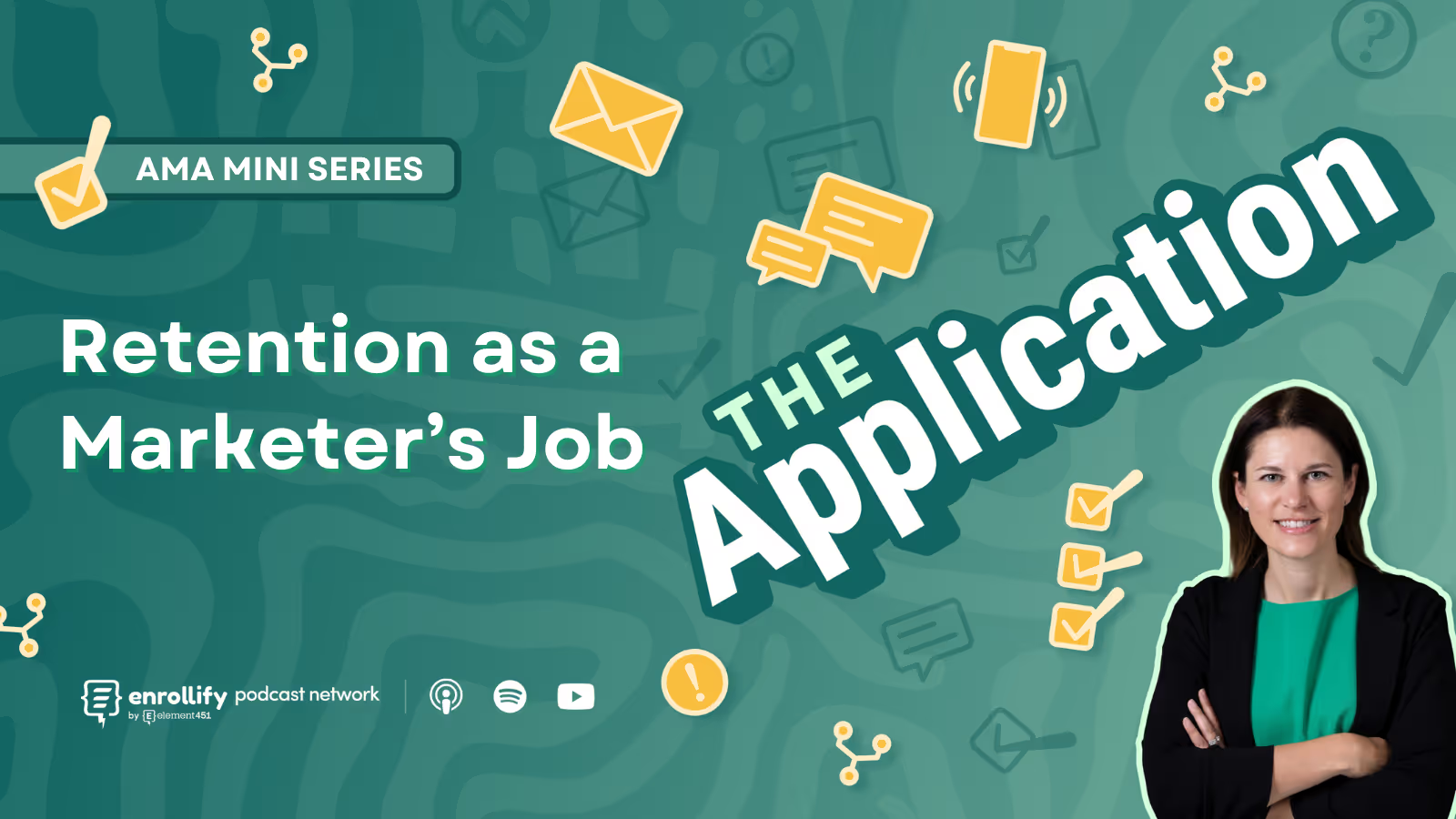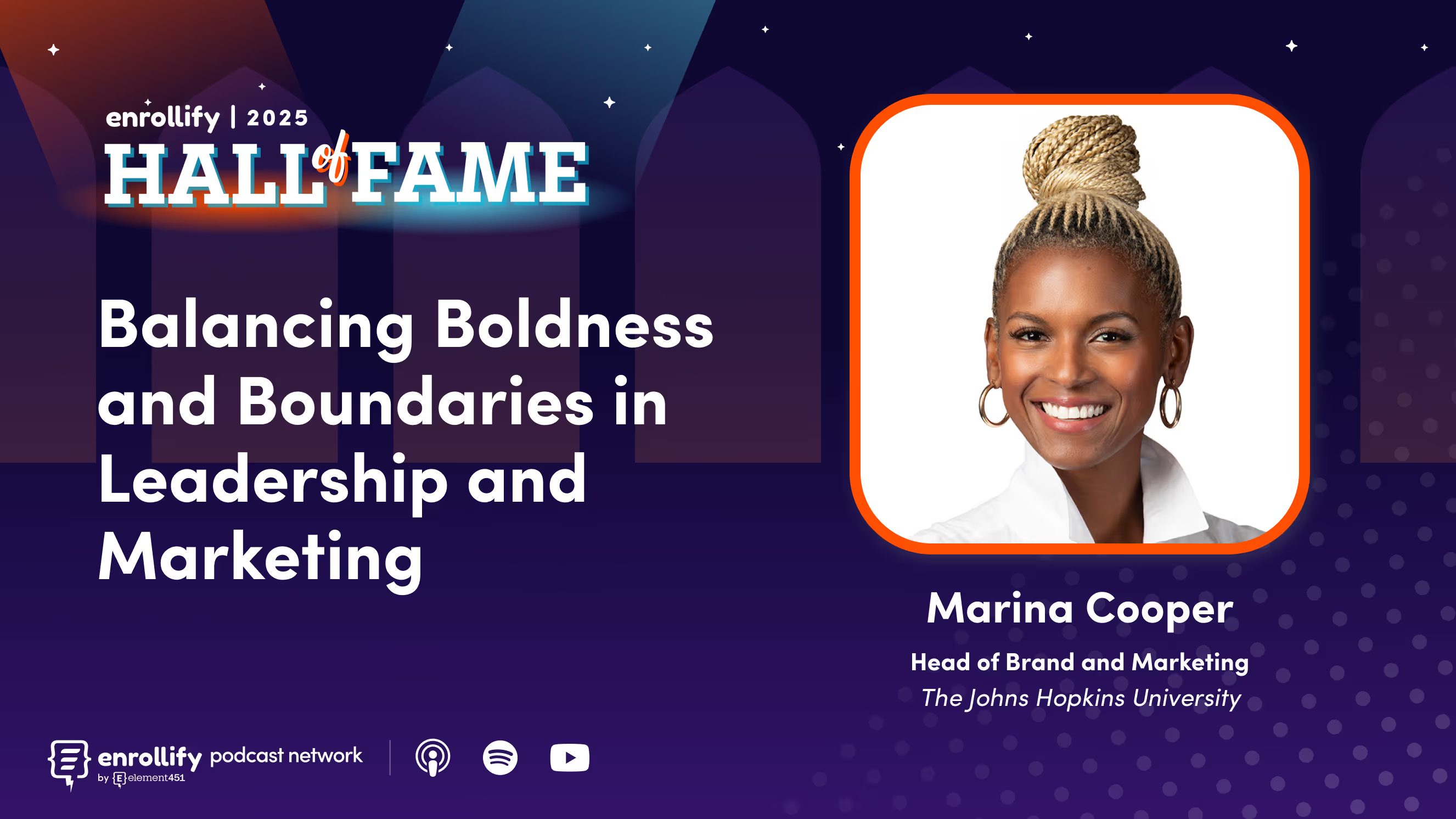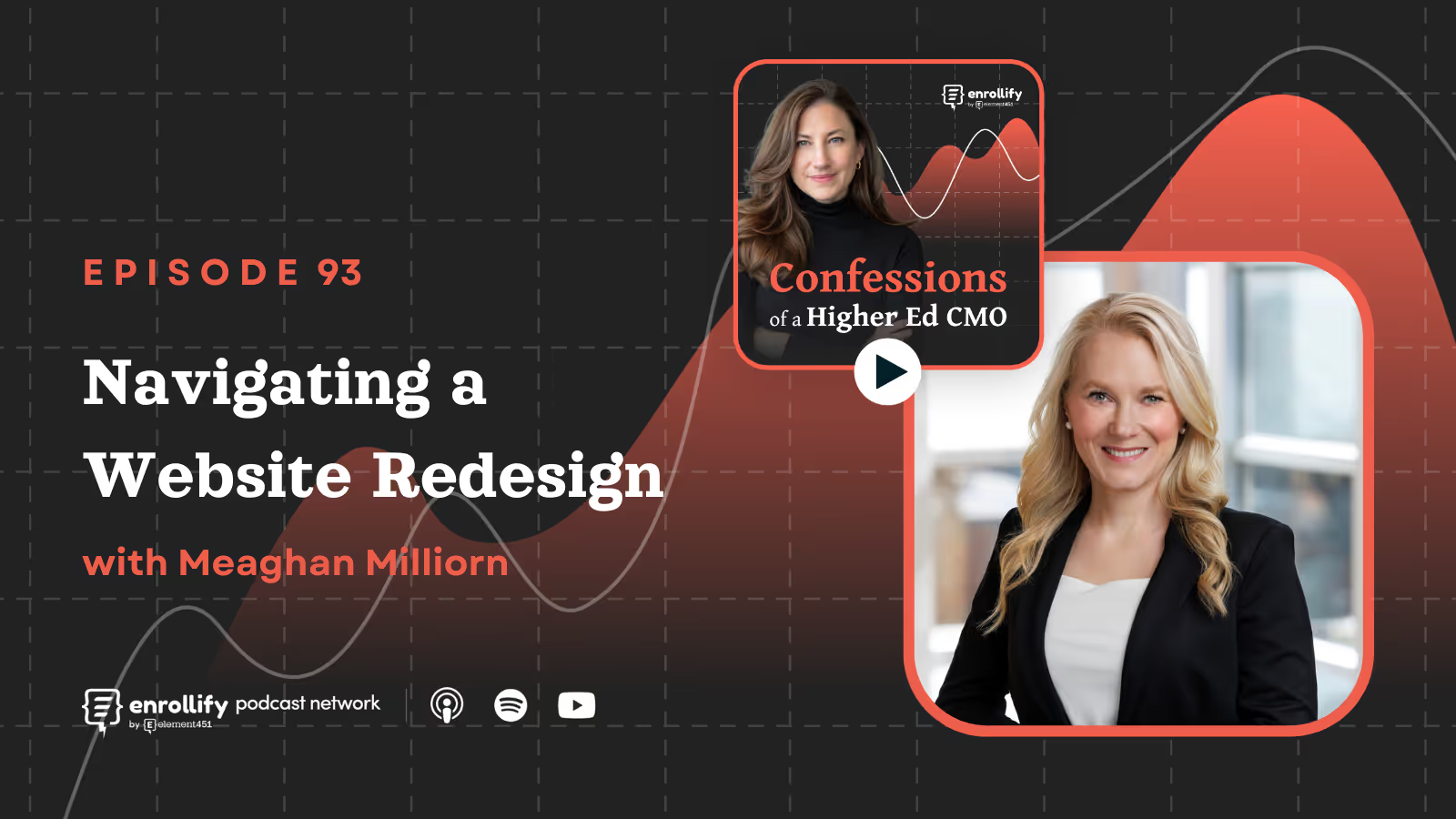About the Episode
About The Episode: Miller shows us how Arizona State University is leading the charge on AI integration and adoption. ASU has created a model that we can all use to help guide us in our AI journey. The resources Tina talked about (in the links below) have a number of inspirational AI use cases and tools that can provide ideas on how we might adapt these for our institutions.
Links from the episode:
The main AI website with resources
Episode prompt:
You are an expert event planner.
I'm going to ask you to help create an event for [type of event - fundraiser, student fair, etc.] for the [institution URL] targeting [ideal audience] with the goal of [desired outcome of event]. There are [lenght of time in weeks, months, years, etc.] before the event.
Ask any necessary questions, one at a time, to gather any additional details needed. Suggest ideas to make the event engaging for attendees and successful for the organization. Make suggestions for volunteer roles. Create a draft of a letter for potential volunteers with details around expectations, duties, and timeline. Create a draft of a letter or announcement for the target audience inviting them to the event. Create an agenda for the event. Also create a post-event survey to sent to attendees.
Create details for the event. Take your time.
Key Takeaways
- AI at ASU: ASU uses AI across three main areas: teaching and learning, societal research, and future work operations.
- Personalized Learning with AI: Tools like Degree Me create customized degree plans for students based on personal interests, enhancing engagement.
- Getting Started with AI: Institutions new to AI should build cross-functional teams including faculty, administration, and IT to advocate and implement initiatives.
- AI Awareness and Literacy: Increasing AI literacy across the institution is vital to mitigate fears and align stakeholders on AI's benefits in higher education.
- Communities of Practice: ASU's collaborative approach, including communities of practice, supports knowledge-sharing and staying updated in the rapidly evolving AI landscape.
Episode Summary
How is ASU Leveraging AI in Higher Education?
Tina Miller describes ASU’s ambitious AI initiatives organized into three key areas: teaching and learning, societal impact through research, and optimizing operations for the future of work. ASU’s AI website serves as a comprehensive resource on their projects, from technical platforms to guidelines on digital trust. Among the standout projects is Degree Me, which uses AI to create customized degree paths tailored to individual student interests, showcasing the university's commitment to hyper-personalization. The success of Degree Me highlights AI’s potential to provide unique educational experiences that align with students' personal and academic goals.
Another project Miller introduces is ASU's creation of digital twins for each of its four campuses. These virtual campus models enable prospective students to explore campus life, attend virtual classes, and "walk" through campus facilities. This innovative approach underscores ASU's focus on using AI to bridge physical distances, making the university experience accessible to all, regardless of location.
How Can Institutions Begin Their AI Journey?
For institutions interested in AI, Tina recommends forming a committee of faculty, IT professionals, and administrators to spearhead AI projects. Leadership buy-in, particularly from university presidents and provosts, is crucial to ensure institutional support. Tina shares ASU’s strategy of creating an AI Acceleration Team, which leads internal projects and fosters a collaborative environment within the university. By building internal tools, like the MyAI Builder for creating bots, ASU exemplifies how universities can develop proprietary AI resources to meet their unique needs without relying solely on external tools.
Institutions must also cultivate a culture of AI literacy to alleviate concerns among faculty and staff about job security or AI's limitations. Educating stakeholders on AI’s role as a tool that complements human expertise rather than replacing it is essential. Tina encourages institutions to hold workshops, develop communities of practice, and regularly communicate AI’s potential benefits to dispel misconceptions and foster enthusiasm around its adoption.
What Role Do Communities of Practice Play in AI Integration?
ASU has found that establishing communities of practice—groups focused on specific aspects of AI—encourages collaboration and drives progress in AI integration. These communities are divided into thematic areas such as digital trust and future work culture, and serve as platforms for faculty and staff to share insights, learn about the latest tools, and contribute to AI literacy across campus. By bringing together professionals with various AI use cases and experiences, ASU’s communities of practice support knowledge-sharing and provide a way for departments to stay up-to-date in a rapidly changing AI environment.
In addition to internal groups, ASU's AI Innovation Challenge invites faculty, researchers, and staff to submit AI project proposals in exchange for ChatGPT licenses. With over 500 ongoing AI projects, this approach encourages hands-on experimentation and idea generation across the university. For institutions just starting out, Miller suggests beginning with modest pilot projects or collaborations to establish a case for change, building momentum for broader AI initiatives.
What Does the Future of AI Look Like in Higher Ed?
Looking ahead, Tina envisions a future where students may each have a "digital twin" or AI assistant, a personalized agent available to answer questions, guide them through coursework, and support their academic journey. ASU’s digital twin campus model is a glimpse of this future, allowing students to immerse themselves in campus life virtually. AI is advancing at an unprecedented rate, and the next evolution may involve more integrated, customizable tools that enhance every aspect of the student experience.
Institutions are encouraged to embrace the rapid pace of AI development by creating short-term, flexible strategies instead of rigid long-term plans. ASU’s rolling publication, AI Journey, captures its accomplishments and next steps, serving as a model for other universities to consider documenting and sharing their AI learning journeys.
Connect With Our Host:
Brian Piper
https://www.linkedin.com/in/brianwpiper/
About The Enrollify Podcast Network:
AI for U is a part of the Enrollify Podcast Network. If you like this podcast, chances are you’ll like other Enrollify shows too!
Some of our favorites include Generation AI and Mastering the Next.
Enrollify is produced by Element451 — the next-generation AI student engagement platform helping institutions create meaningful and personalized interactions with students. Learn more at element451.com.
Attend the 2025 Engage Summit!
The Engage Summit is the premier conference for forward-thinking leaders and practitioners dedicated to exploring the transformative power of AI in education.
Explore the strategies and tools to step into the next generation of student engagement, supercharged by AI. You'll leave ready to deliver the most personalized digital engagement experience every step of the way.
👉🏻 Register now to secure your spot in Charlotte, NC, on June 24-25, 2025! Early bird registration ends February 1st.















